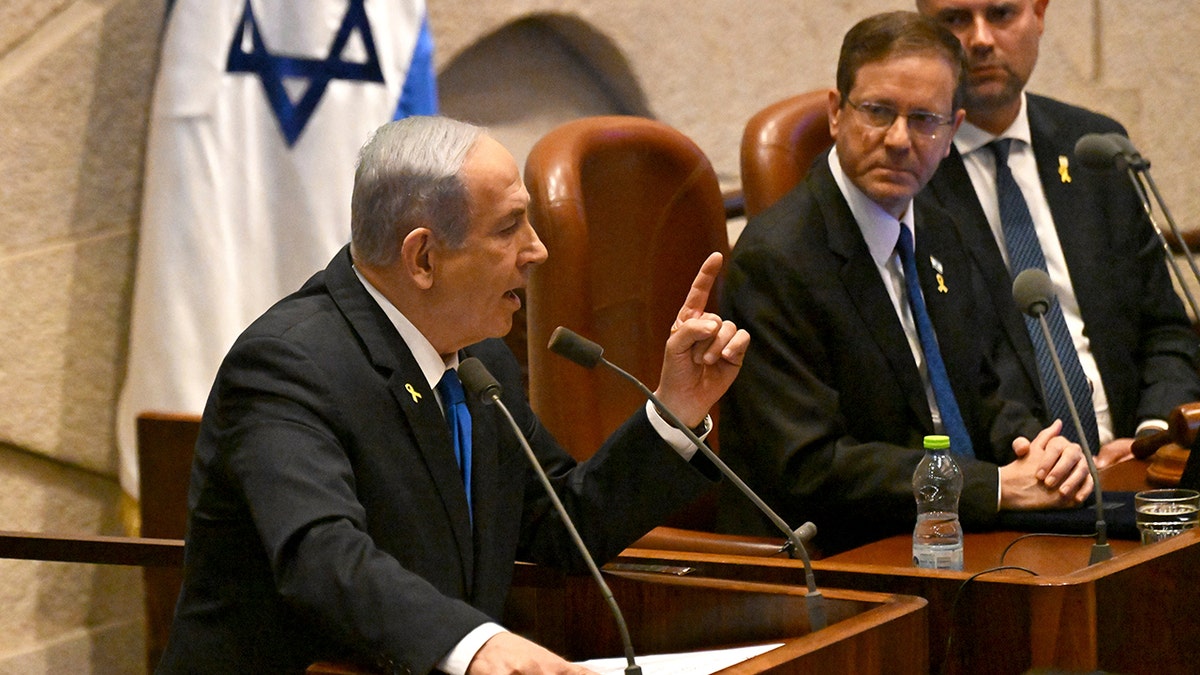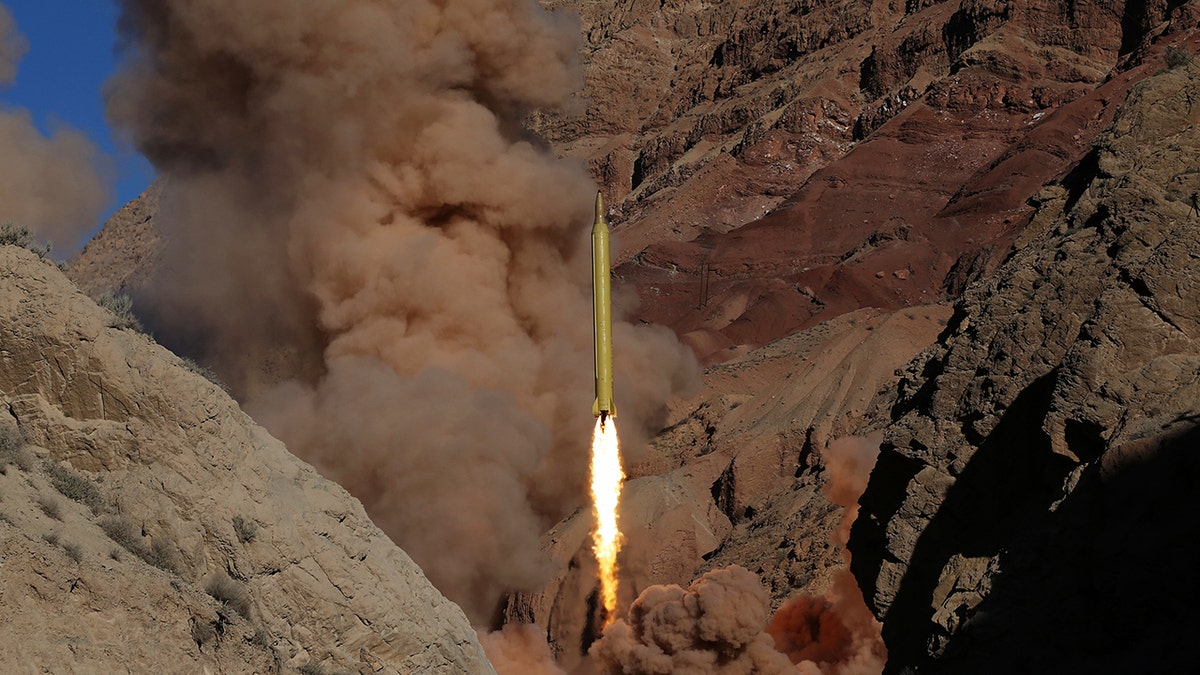
Israeli Prime Minister Benjamin Netanyahu said the retaliatory attack Jerusalem launched on Iran in late October degraded part of Tehran’s nuclear program.
“It’s not a secret,” Netanyahu said in a Knesset speech reported by the Times of Israel. “There is a specific component in their nuclear program that was hit in this attack.”
Despite the prime minister’s comments, it had not previously been confirmed by Israeli officials that Tehran’s coveted nuclear program, which it has been attempting to beef up since the collapse of the Joint Comprehensive Plan of Action nuclear agreement in 2018, had been targeted in last month’s strike.
An Israeli Air Force plane prepares to strike targets in Iran on Oct. 26, 2024. (IDF Spokesman’s Unit)
IRAN MILITARY HEADS VOW ‘CRUSHING’ RESPONSE TO ISRAEL AS UN ATOMIC CHIEF SAYS NUKE SITES SHOULDN’T BE ATTACKED
Israeli security officials confirmed that military sites had been targeted during the overnight strike on Oct. 26 that caused concern among global leaders about an all-out war as the two nations ramp up direct lines of attack on one another.
The international community, along with the Biden administration, attempted to re-enter into negotiations with Tehran to counter its nuclear development, though to no avail.
The U.N. nuclear watchdog, the International Atomic Energy Agency (IAEA), earlier this year warned that Iran’s nuclear program has largely run unchecked for the last six years, and it is believed to have increased its stockpiles of highly enriched uranium metals to 60% purity levels; just shy of weapons-grade uranium, which is enriched to 90% purity.

Israeli Prime Minister Benjamin Netanyahu speaks at the opening of the 25th Knesset session in Jerusalem on Oct. 28, 2024. (Debbie Hill/Pool Photo via AP)
But IAEA Director General Rafael Grossi has warned that Iran’s nuclear facilities should not become a target as Israel ramps up direct operations against Tehran.
Netanyahu did not expand on how Iran’s nuclear program has been affected after the strikes last month, but on Monday he reportedly said it was not enough to have entirely blocked Iran’s path to obtaining a nuclear weapon.

The Foundation for Defense of Democracies has analyzed where Iran’s nuclear infrastructure is located as Israel mulls a retaliatory attack. (Foundation for Defense of Democracies)
UN WATCHDOG WARNS TIME TO ‘MANEUVER’ ON IRAN’S NUCLEAR PROGRAM IS SHRINKING: REPORT
Israel destroyed an active nuclear weapons research facility in Parchin, roughly 20 miles southeast of Tehran.
Grossi visited two Iranian nuclear sites last week and said he would engage in high-level talks with Tehran in a push to get Iran to adhere to international agreements and nuclear safeguards.
In a message later posted to X, Iranian Foreign Minister Abbas Araghchi said he was ready to engage in international talks but noted Tehran would not succumb to pressure as President-elect Donald Trump returns to the White House with what many believe will be a much stronger approach when it comes to Iran.

An Iranian Qadr H long-range ballistic surface-to-surface missile (AP Photo/Fars News Agency/Omid Vahabzadeh/File)
CLICK HERE TO GET THE FOX NEWS APP
“The ball is in the EU/E3 court,” the foreign minister said in reference to three European countries, France, Britain and Germany, that represent Western interests, including the U.S., during nuclear talks.
“Willing to negotiate based on our national interest and inalienable rights but not ready to negotiate under pressure and intimidation,” Araghchi said.





